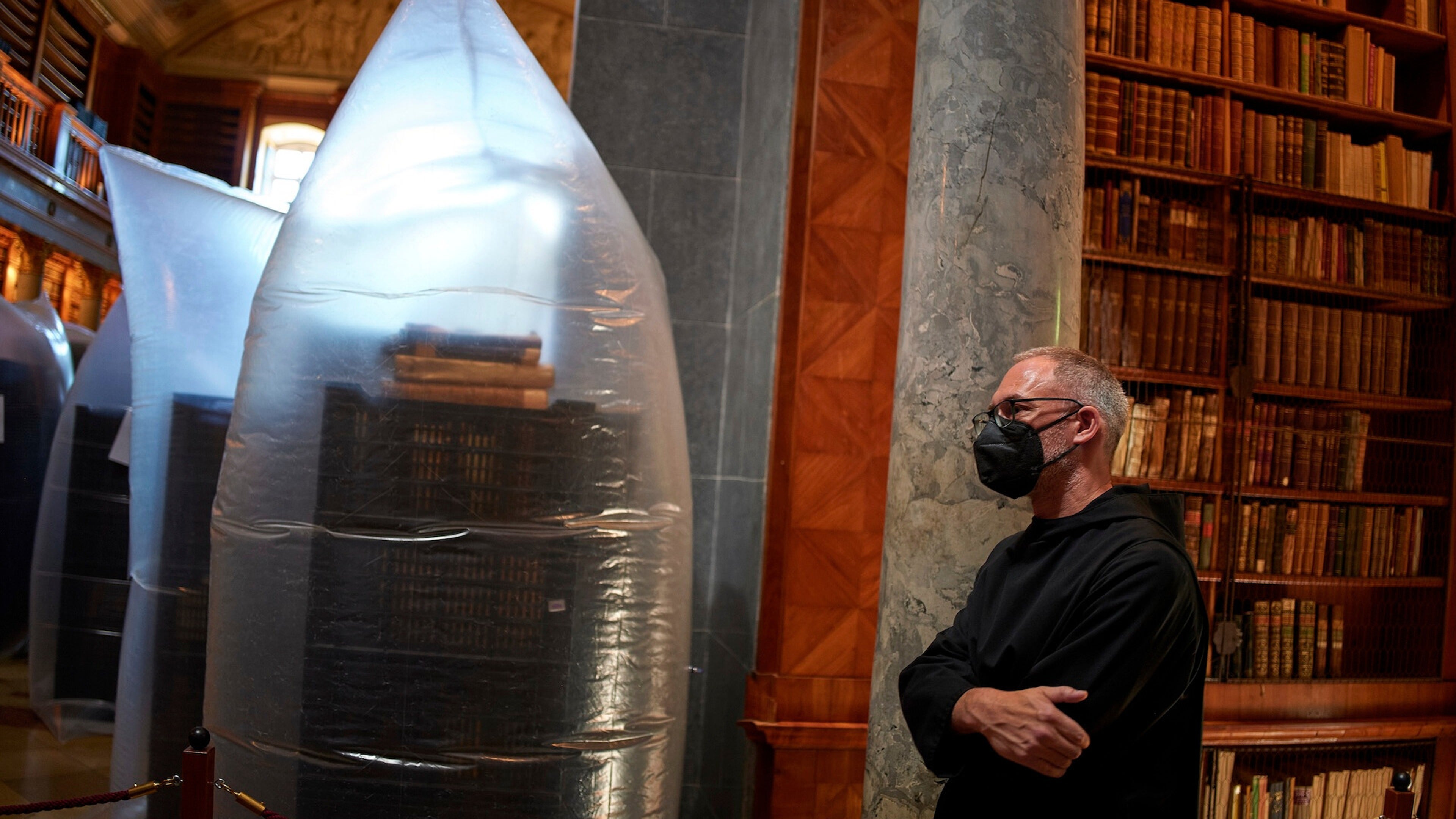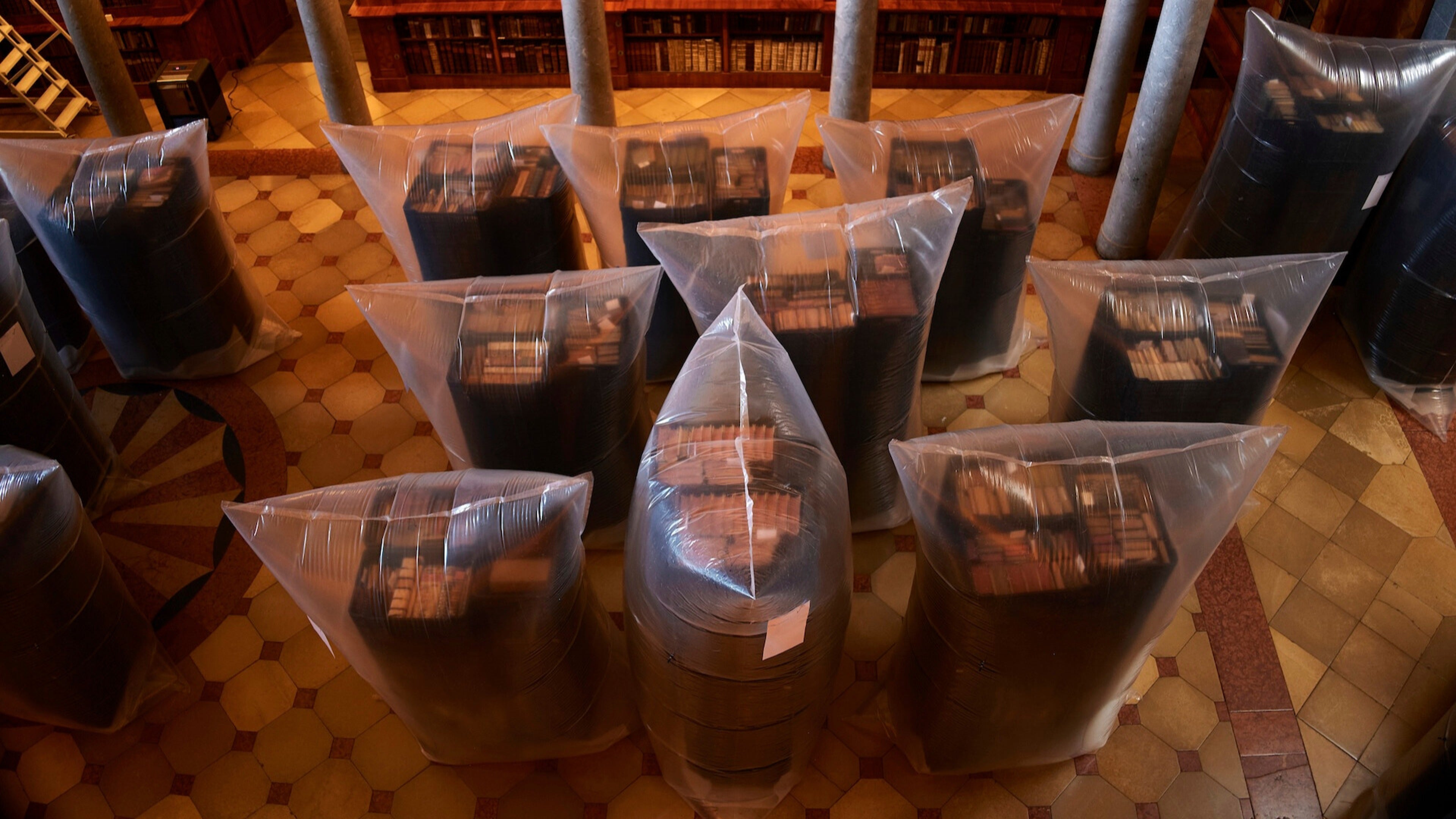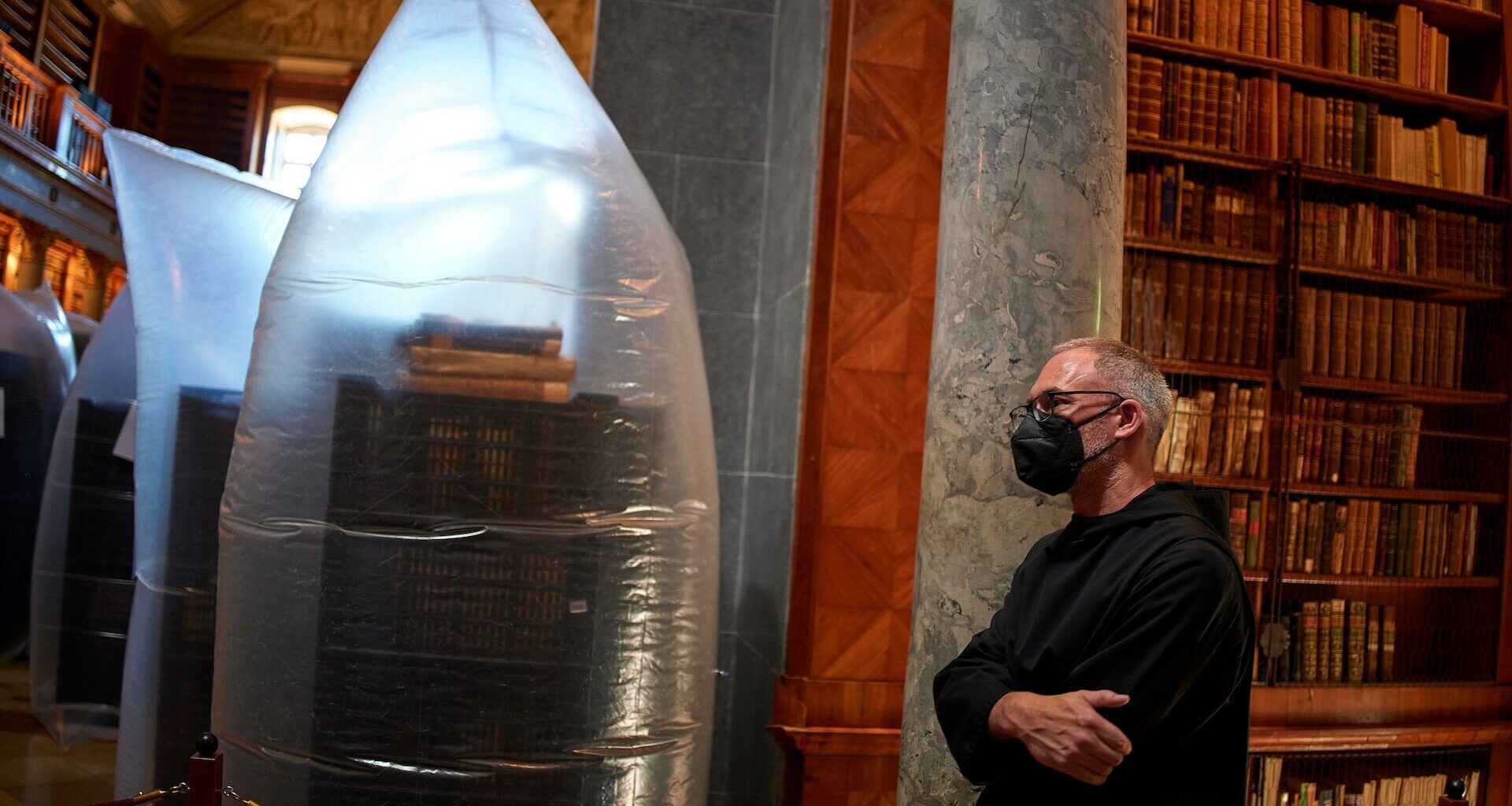
A priest wearing a face mask stands by books kept in hermetically sealed plastic sacks for disinfection at the Pannonhalma Archabbey’s library in Pannonhalma, Hungary on Thursday, July 3, 2025, as a beetle infestation threatens its ancient collection.
(AP Photo/Bela Szandelszky)
At a roughly 1,000-year-old abbey in Hungary, climate change may literally be quietly eating away at history.
The Pannonhalma Archabbey, perched on a hilltop in northwestern Hungary, is home to one of Europe’s oldest libraries. Inside are more than 400,000 books, some dating back to the 13th century, along with medieval codices and hand-bound manuscripts that survived centuries of war, invasion, and political upheaval. But now they are facing a modern threat: beetles.
“When I see a book chewed up by a beetle or infected in any other way, I feel that no matter how many copies are published and how replaceable the book is, a piece of culture has been lost,” Archabbey director, Ilona Ásványi told the Associated Press.
Weather in your inbox
By signing up you agree to the Terms & Privacy Policy. Unsubscribe at any time.
Restoration crews are working around the clock to remove 100,000 of those precious books after discovering a growing infestation of drugstore beetles, also known as bread beetles. These tiny pests are usually found in pantries, drawn to dried grains and spices. But they’re just as interested in books, especially ones bound with gelatin or starch-based adhesives.
Climate Change Could Be Playing A Role
Experts say the infestation may be getting worse because of rising temperatures. Warmer weather means beetles can complete more development cycles in a year, which means more beetles, faster. The abbey’s head restorer said this is the first time they’ve seen this level of insect damage, and she expects more libraries may face similar challenges as the climate continues to warm.

Linear trend in annual surface temperature for 1995-2024.
(Copernicus, C3S, ECMWF)
Europe continues to be one of the fastest-warming places in the world. According to a new report released by Copernicus, Europe is warming at an astonishing pace that’s twice as fast as the rest of the world. The only area warming faster is the Arctic. The global average temperature has risen by roughly 2.3 degrees Fahrenheit since pre-industrial levels. Europe has warmed by roughly 4.3 degrees Fahrenheit.
A mix of shifting weather patterns, cleaner air allowing more solar radiation to reach the ground, and proximity to the rapidly warming Arctic all contribute to this alarming trend.
How To Stop The Hungry Beetles
Eradicating the beetles will be a painstaking process.

Books are kept in hermetically sealed plastic sacks for disinfection at the Pannonhalma Archabbey’s library in Pannonhalma, Hungary on Thursday, July 3, 2025, as a beetle infestation threatens its ancient collection.
( AP Photo/Bela Szandelszky)
Each book is being sealed in a large oxygen-free bag filled with nitrogen for six weeks, a process that kills the bugs without damaging the fragile paper. After that, each volume will be inspected and vacuumed before going back on the shelf. Books that were heavily damaged will be restored later.
Jennifer Gray is a weather and climate writer for weather.com. She has been covering some of the world’s biggest weather and climate stories for the last two decades.

